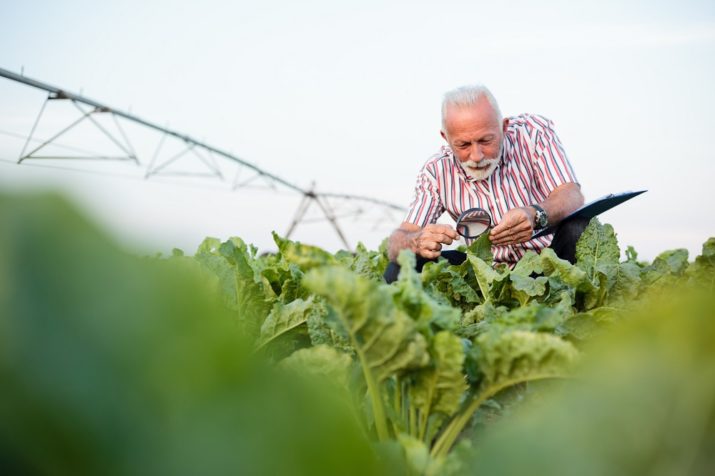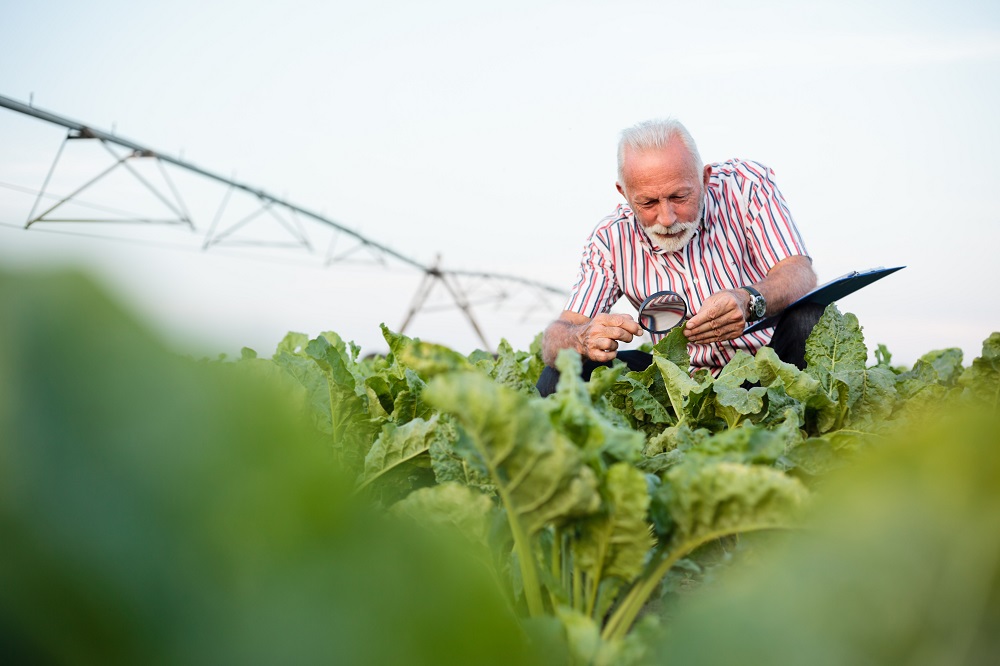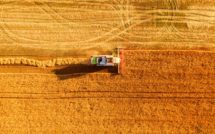

This is part of our Campus Spotlight on Middlebury College.
What is knowledge? In this course, we will explore the rise of the authority of science across much of the globe. We will regard potential problems with and challenges to science’s dominant position, and we will analyze whether and how other forms of knowledge may shape contemporary social, cultural, and political life. Practical cases to illustrate these dynamics will draw from the food system, and we will conduct significant engagement with our local community’s emergency food system to translate theoretical concepts around knowledge into practice.
Week 1: Introduction to Sociology of Knowledge
Monday, September 11: Class Introductions
- Review Syllabus
Plan for Class: Class overview and introductions.
Assignment for Class: Be prepared to discuss why you chose to take this class and what you hope to get out of the course. Questions about the course and syllabus welcome.
Assignment 1: Choose 2-3 ‘Objects’
Wednesday, September 13: Social Construction and Object Workshopping
- Opel, Andy. 1999. “Constructing Purity: Bottled Water and the Commodification of Nature.” Journal of American Culture. 22: 67-76.
Plan for Class: Lecture and discussion on social construction. ‘Object’ workshopping.
Assignment for Class: Reading Reflection #1 Due. We will discuss the readings. Please be prepared with questions, comments, etc.
Assignment 1 DUE
Assignment 2: Write 1-3 Pages about Your Chosen Object
Week 2: The Rise of Scientific and Credentialed Expert Authority
Monday, September 18: The Rise of Science and Credentialed Experts and Expertise
- Gieryn, Thomas. 1983. “Boundary Work and the Demarcations of Science from Non-Science: Strains and Interests in Professional Ideologies of Scientists.” American Sociological Review. 48(6): 781-795.
- Ellsworth, Jessica. 2001. Pp 1-13 ONLY in “This History of Organic Food Regulation.” Food and Drug Law, 3rd Year Paper, Harvard University.
Plan for Class: Lecture and discussion on the rising authority of science and credentialed experts. Exemplar: organics and the organic standards board.
Assignment for Class: Reading Reflection #2 Due. We will discuss the readings. Please be prepared with questions, comments, etc.
Assignment 2 DUE
Assignment 3: Write 1-3 Pages about Who the Experts of Your Chosen Object Are, including How They Are Made and Maintained
Wednesday, September 20: Protecting Scientific and Credentialed Knowledge
- Aoki, Keith. 2008. Pp 3-58 (Chapters 1, 2, and 3) in Seed Wars: Controversies and Cases on Plant Genetic Resources and Intellectual Property.
Plan for Class: Lecture and discussion on how the authority of science and credentialed experts is maintained. Exemplar: patents in food and agriculture.
Assignment for Class: Reading Reflection #3 Due. We will discuss the readings. Please be prepared with questions, comments, etc.
Week 3: Hunger in Vermont and Addison County
Monday, September 25: Guest Speakers on Hunger in Vermont
- Hunger Council of Addison County. 2017. “Welcome to the Hunger Council of Addison County!” Mission and overview statement.
Plan for Class: Guest speakers on hunger in Vermont.
Assignment for Class: We will discuss hunger in Vermont. Please be prepared with questions, comments, etc.
Wednesday, September 27: Guest Speaker on Addison County’s Emergency Food System
- Snow, Theresa and Elana Dean. 2016. “Food Loss in Vermont: Estimating Annual Vegetable and Berry Loss.” A Salvation Farms’ Analysis.
- Nesheim, Oria, and Yih, eds. 2015. “The U.S. Food and Agriculture System as a Complex Adaptive System.” Pp 233-242 in A Framework for Assessing Effects of the Food System. National Academies Pres.
Plan for Class: Guest speaker, discussion, and activity regarding the emergency food system in Addison County.
Assignment for Class: We will discuss the emergency food system in Addison County. Please be prepared with questions, comments, etc
Assignment 3 DUE
Week 4: Potential Problems with Science and Credentialed Experts’ Authority
Monday, October 2: Addison County Emergency Food System Discussion and Assessment Planning + Changing Science
- Kuhn, Thomas. Pp 1-22, and 35-42 (Chapters 1, 2, and 4) in The Structure of Scientific Revolutions.
Plan for Class: Critical discussion on the Addison County emergency food system, including who is participating, who holds power, what knowledge is represented, and how we want to analyze this.
Assignment for Class: Reading Reflection #4 Due. We will discuss the readings. Please be prepared with questions, comments, etc.
Wednesday, October 4: Objectivity and the Exclusion of Other Experts and Expertise
- Nestle, Marion. 2007. Ch 4, “Influencing Government” Pp 95-110 AND Ch 5, “Co-Opting Nutrition Professionals” Pp 111-136 ONLY in Food Politics. University of California Press.
- Wynne, Brian. 1996. “May the Sheep Safely Graze? A Reflexive View of the Lay-Expert Divide.” Pp. 44-80 in Risk, Modernity, and the Environment.
Plan for Class: Lecture and discussion on potential problems wit the authority of science and credentialed experts, including the notion of objectivity and exclusion. Exemplar: the ‘revolving door’, research, and role of traditional farmers in food systems decision-making.
Assignment for Class: Reading Reflection #5 Due. We will discuss the readings. Please be prepared with questions, comments, etc.
Week 5: Potential Problems with Science and Credentialed Experts’ Authority, Continued
Monday, October 9: Exclusion, Continued
- Haraway, Donna. 1988. “Situated knowledges: The science question in feminism and the privilege of partial perspective.” Feminist Studies. 14(3): 575–599.
- Shiva, Vandana. 1991. Pp 12-25 (Chapter 1) in The Violence of the Green Revolution: Third World Agriculture, Ecology, and Politics.
Plan for Class: Continue lecture and discussion on potential problems wit the authority of science and credentialed experts, including exclusion and dynamics of power, privilege, and oppression. Exemplar: the ‘Green Revolution.’
Assignment for Class: Reading Reflection #6 Due. We will discuss the readings. Please be prepared with questions, comments, etc.
Assignment 4: Write 1-3 Pages about Who Is Not an Expert of Your Object, and Why this May Be Problematic
Wednesday, October 11: Addison County Emergency Food System Assessment Workshopping
- Herrara and Bradley. 2016. “Decolonizing Food Justice: Naming, Resisting, and Researching Colonizing Forces in the Movement.” 48(1): 97-114.
- Site visits plans
- Prepare assessment tools
Plan for Class: Workshop and finalize our on Addison County emergency food system assessment tools.
Assignment for Class: We will workshop our Addison County emergency food system site visits and assessment tools. Please come with prepared with questions, comments, etc.
Week 6: Addison County Emergency Food System Site Visit and Assessment 1
Monday, October 16: No Formal Class Meeting: Site Visit 1
- No new readings
- Visit site and conduct assessment
Plan for Class: Class will not meet formally. You will visit and conduct your site 1 assessment either during class period or another time you have arranged with your site between Thursday, October 12 and Tuesday, October 17.
Assignment for Class: Visit and conduct your site 1 assessment.
Assignment 4 DUE
Wednesday, October 18: Site Visit Debrief
- No new readings
- Site visit summary and debrief
Plan for Class: We will discuss our site visits and assessments.
Assignment for Class: Prepare a summary and presentation on your site visit and assessment. Please be prepared not only to share your experience and findings, but also come prepared to listen, question, and comment on others’.
Week 7: Other Knowledge Forms
Monday: No Class, Midterm Recess
Wednesday: Discussion of other Knowledge Forms
- Corburn, Jason. 2005. Pp 47-78 (Chapter 2) in Street Science: Community Knowledge and Environmental Health Justice.
- Collins, Patricia H. 2000. Pp. 251-272 (Chapter 11) in Black feminist thought: Knowledge, consciousness, and the politics of empowerment.
Plan for Class: We will explore some other knowledge forms. Exemplar: alternative food movements.
Assignment for Class: Reading Reflection #7 Due. We will discuss the readings. Please be prepared with questions, comments, etc.
Assignment 5: Write 1-3 Pages About other Knowledge Potentially Relevant to Your Object and Why this Might Have Value…Also, What is the Knowledge You Bring to Your Object? Are You or Aren’t You An Expert of Your Object? What Value Does Your Knowledge Bring?
Week 8: Addison County Emergency Food System Site Visit and Assessment 2
Monday: No Formal Class Meeting: Site Visit 2
- No new readings
- Visit site and conduct assessment
Plan for Class: Class will not meet formally. You will visit and conduct your site 2 assessment either during class period or another time you have arranged with your site between Thursday, October 25 and Tuesday, October 31.
Assignment for Class: Visit and conduct your site 2 assessment.
Wednesday 1: Site Visit Debrief
- No new readings
- Site visit summary and debrief
Plan for Class: We will discuss our site visits and assessments.
Assignment for Class: Prepare a summary and presentation on your site visit and assessment. Please be prepared not only to share your experience, but with questions and comments for others.
Assignment 5 DUE
Week 9: Addison County Emergency Food System Draft Analysis
Monday: Addison County Emergency Food System Draft Analysis
- No new readings
- Bring draft analysis components
Plan for Class: We will finalize a draft analysis of Addison County’s emergency food system and our planned next steps for presentation to the Addison County Hunger Council and state legislators.
Assignment for Class: Please come with your draft analysis components and be prepared to finalize in class with your colleagues.
Tues: Addison County Hunger Council Meeting and State Legislator Presentation
- Please attend the Addison County Hunger Council Meeting to Present our Analysis!
3-5pm, CSAC in Catamount Park off Exchange Street
Wednesday: Hunger Council Meeting Debrief and Next Steps Brainstorm –
- No new readings
Plan for Class: We will discuss our experience at the Addison County Hunger Council meeting and prepare our next steps.
Week 10: Activist Efforts to Democratize Decision-Making
Monday: Activists Leading the Charge for Change
- View Film—Urban Roots
- Read: White, Monica M. 2011. “Sisters of the Soil: Urban Gardening as Resistance in Detroit.” Race/Ethnicity 5(1): 13-28.
Plan for Class: View Film—Urban Roots
Assignment for Class: Please do the readings and come prepared for the film.
Wednesday: Activists Democratizing Decision-Making
- Parthasarathy, Shobita. 2010. “Breaking the expertise barrier: understanding activist strategies in science and technology policy domains.” Science and Public Policy. 37(5): 355–367
- Morrell, Erica. 2017. “Localizing Detroit’s Food System: Boundary-Work and the Politics of Experiential Expertise.” Science as Culture.
Plan for Class: We will discuss activist efforts to expand whose and what forms of knowledge are represented in decision-making. Exemplar: food justice.
Assignment for Class: Reading Reflection #8 Due. We will discuss the readings. Please be prepared with questions, comments, etc.
Assignment 6: Write 1-3 Pages on How Your Object Could Be Democratized (or if it is already being democratized, How So and Why?)
Week 11: Government and Scientist Efforts to Democratize Decision-Making
Monday: Government and Scientists Democratizing Decision-Making
- Einsiedel, Edna F., Erling Jelsøe, and Thomas Breck. 2001. “Publics at the technology table: The consensus conference in Denmark, Canada, and Australia.” Public Understanding of Science. 10: 83-98.
- Allen, Barbara. 2004. “Shifting boundary work: Issues and tensions in environmental health science in the case of Grand Bois, Louisiana.” Science as Culture. (13)4: 429-448
Plan for Class: We will discuss scientists and governments’ efforts to expand whose and what forms of knowledge are represented in decision-making. Exemplar: seed banking.
Assignment for Class: Reading Reflection #9 Due. We will discuss the readings. Please be prepared with questions, comments, etc.
Week 12: Addison County Emergency Food System Final Analysis
Monday: Addison County Emergency Food System Analysis Finalizing
- No New Readings
- Bring your draft final analysis components
Plan for Class: We will put together our final Addison County Emergency Food System Analysis and prepare to present them to members of the Addison County Hunger Council.
Assignment for Class: Come prepared with your final analysis components.
**Details on final handed out
Wednesday: Knowledge in the Age of Trump
- Carter et al. “Sidelining Science Since Day One.” Center for Science and Democracy. Union of Concerned Scientists Report. July.
- Find your own additional reading and prepare to discuss in class
Plan for Class: Talk about knowledge under Trump—are changes happening? Is this just lifting the veil on what has already been going on? Is nothing changing? Is this good, bad, neutral?
Assignment for Class: Find your own additional reading and prepare to discuss this and the assigned reading in class.
Assignment 6 DUE
Week 13: The Future of Knowledge
Monday: Addison County Emergency Food System Analysis Delivery
- Bring your final analysis components and prepare to present them
Plan for Class: We will finalize our Addison County Emergency Food System Analysis and present it to members of the local media.
Assignment for Class: Reading Reflection #10 Due. We will discuss the readings. Please be prepared with questions, comments, etc.
Wednesday: Discussion of the future of knowledge and Course Wrap-Up/Final Presentations
- No New Readings
- Object Presentations
- Discussion
Plan for Class: “Object” presentations, discussions about the future of knowledge, and course wrap-up.
Assignment for Class: You will present on your object and listen to others’ presentations. Plus, course wrap-up and good-byes!
Week 14: Final Due
Monday, December 11: Final Due
Photo: Agronomist examining sugar beet or soybean leaves with magnifying glass. Irrigation system in background. Organic food production | Shutterstock
Published on September 5, 2018.




